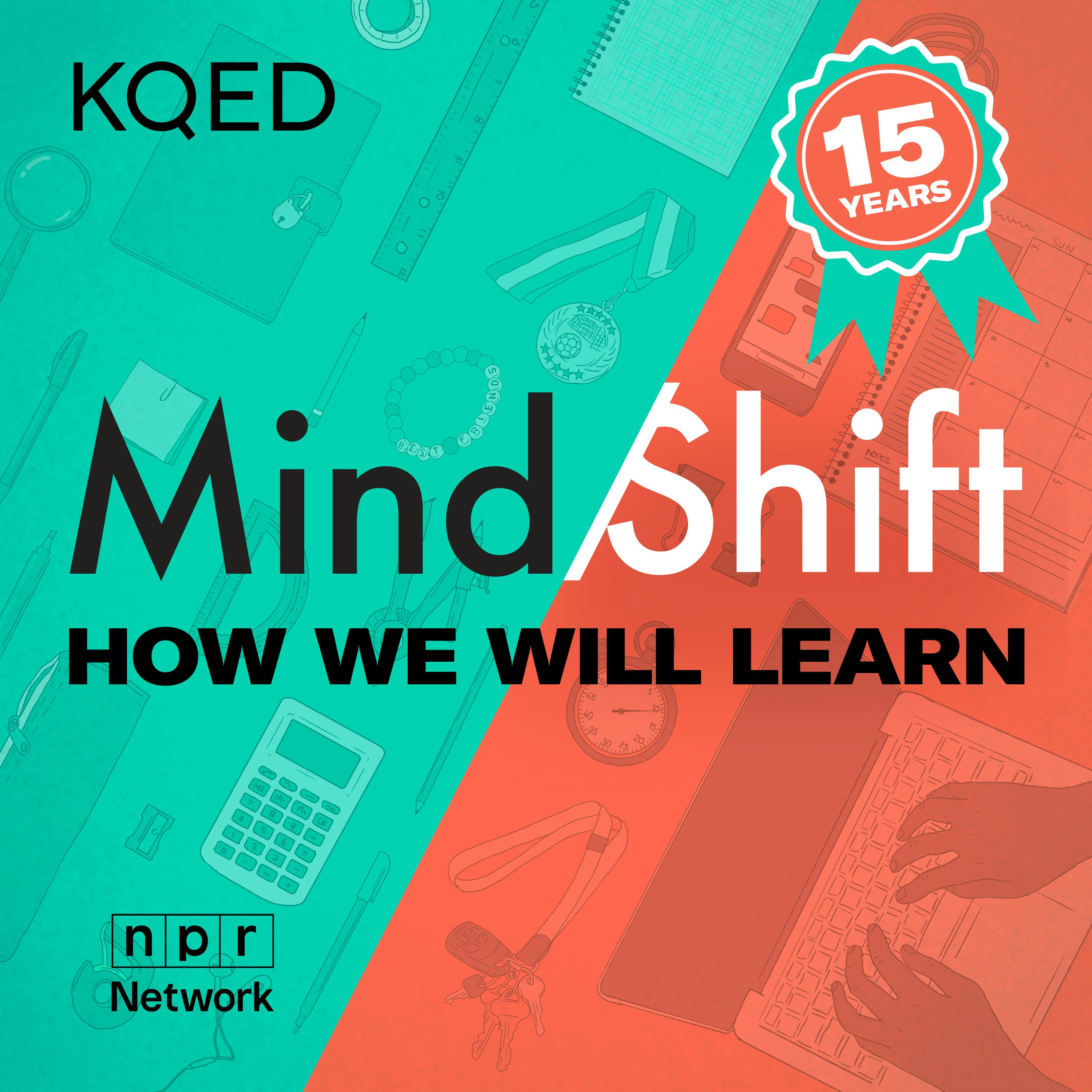

MindShift Podcast
KQED
It’s easy to see a child’s education as a path determined by grades, test scores and extra curricular activities. But genuine learning is about so much more than the points schools tally. MindShift explores the future of learning and how we raise our kids. This podcast is part of the MindShift education site, a division of KQED News. You can also visit the MindShift website for episodes and supplemental blog posts or tweet us @MindShiftKQED or visit us at MindShift.KQED.org. Take our audience survey! https://survey.alchemer.com/s3/7297739/b0436be7b132
Episodes
Mentioned books

Sep 10, 2024 • 27min
Humanizing History by Teaching with Primary Sources
History isn't just about names and dates; it's about real lives and stories. Schools in Virginia use primary sources, like personal diaries and photographs, to teach fourth graders about the Civil Rights Movement. Students engage with the past by discussing segregation and landmark cases. This method boosts critical thinking and makes history relatable. Educators also emphasize the importance of sensitivity when discussing racial issues, ensuring that students connect deeply with themes of activism and inequality.

Aug 27, 2024 • 25min
How to Get Kids Thinking Instead of Mimicking in Math Class
From book bans to chronic absenteeism to phone distractions, it’s a hard time to be a teacher. But amidst all the challenges, there’s something surprising happening among math teachers. Some of them say they’re more excited to go to work than ever before. Why? Because of a new approach to teaching math called “thinking classrooms” that has students up out of their seats and engaged in problem-solving. In this episode, MindShift listeners will hear a thinking classroom in action and reflections from the teacher and her students. Listeners also will learn about this model from the researcher who developed it, Peter Liljedahl.

Aug 13, 2024 • 31min
The Black Panther Legacy and Oakland Community Schools
MindShift revisits the pioneering initiatives of the Black Panthers, who used a community school approach when they opened a first-of-its-kind school in East Oakland in 1973. Then we focus on Oakland Unified School District's ambitious journey to become a community school district. We’ll take a closer look at Oakland International High School (OIHS), a public high school established in 2007 that serves 100% English language learners and how they’ve successfully used the community school model to support their students.

Jul 30, 2024 • 23min
What Role Can Schools Play in Breaking Cycles of Homelessness?
This podcast episode explores Monarch School, a public school in San Diego County dedicated to serving unhoused students and their families. Highlighting the growing issue of homelessness among students and its adverse impact on education, we showcase Monarch School's community school model. By providing holistic support, including professionals and services co-located on the school grounds, this model has the capacity to disrupt patterns of homelessness. From addressing basic needs to offering specialized academic programs, Monarch School exemplifies the transformative power of community-driven approaches to education, offering hope and opportunity to vulnerable students.

Jul 16, 2024 • 24min
A Research-Backed Way to Improve Student Attendance
Not all students returned to school after the pandemic. Research shows that chronic absenteeism surged around the country. Niki Espinoza, a community school coordinator at Maple Elementary, discovered a strategy informed by Harvard research that centered collaboration with families. Using mail-based “nudges” and a social media campaign caused chronic absenteeism to decline. This episode presents an exploration of community schools, emphasizing the significance of partnerships with parents and detailing Maple Elementary's journey in overcoming attendance challenges.

Jul 9, 2024 • 3min
MindShift Returns With Season 9!
MindShift returns with Season 9!Discover solutions for raising our kids in the modern era. Hear from educators and experts creating pathways for students to flourish. Subscribe to receive new episodes starting July 16.

May 14, 2024 • 38min
What's Lost When Books Are Banned?
We're sharing an episode from our friends at the Adult ISH podcast. In light of the latest number of attempted book bans as tracked by the American Library Association (ALA), Adult ISH hosts Nyge Turner and Dominique “Dom” French speak to Traci Thomas, host of “The Stacks” podcast, and Scott Stuart, author of “My Shadow is Purple,” about how removing access to books can cause harm.Want more great ideas about teaching and learning? Subscribe to the MindShift newsletter https://www.kqed.org/newsletters/mindshift

May 6, 2024 • 6min
Dipping Into the Mindshift Mailbag
We love hearing from you, our listeners, and learning how you’re putting the insights that we share into your teaching and your parenting. We like to see the way that we deliver value to your lives. If you appreciate the work that we do on Mindshift, please visit https://donate.kqed.org/podcasts to support us.

Apr 9, 2024 • 24min
Where Are All the School Buses?
We're sharing an episode from our friends at the Bay Curious podcast. California has fewer school buses than in other parts of the country. A survey conducted by the Federal Highway Administration found that nationally, almost 40% of school-aged kids ride a school bus. In California, that number is only 8%. KQED's Katrina Schwartz tracks down the reason why that number is so low.Want more great ideas about teaching and learning? Subscribe to the MindShift newsletter. https://www.kqed.org/newsletters/mindshift

Mar 12, 2024 • 23min
How Much Phonemic Awareness Do Students Really Need?
Education journalist, Jill Barshay of the Hechinger Report, writes a weekly column about education research called “Proof Points.” She joins KQED's Ki Sung to discuss her latest piece about phonemic awareness and why this important skill, that's at the root of learning how to read, is so hotly debated.


